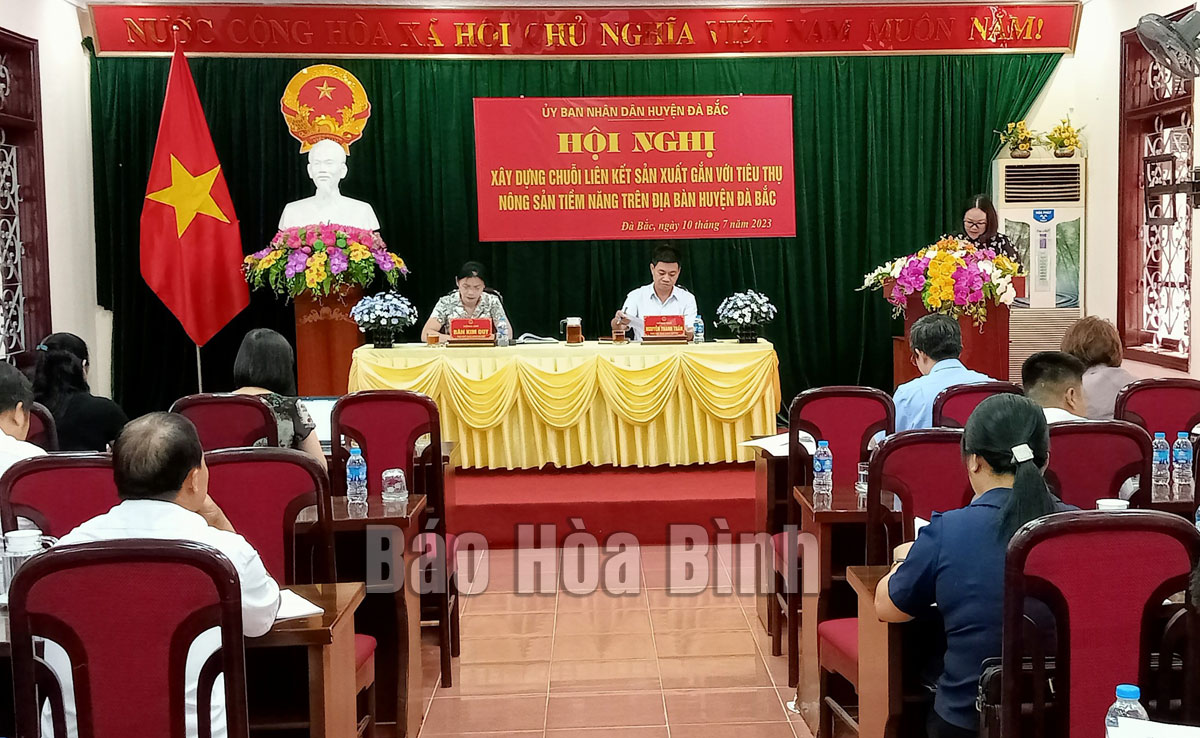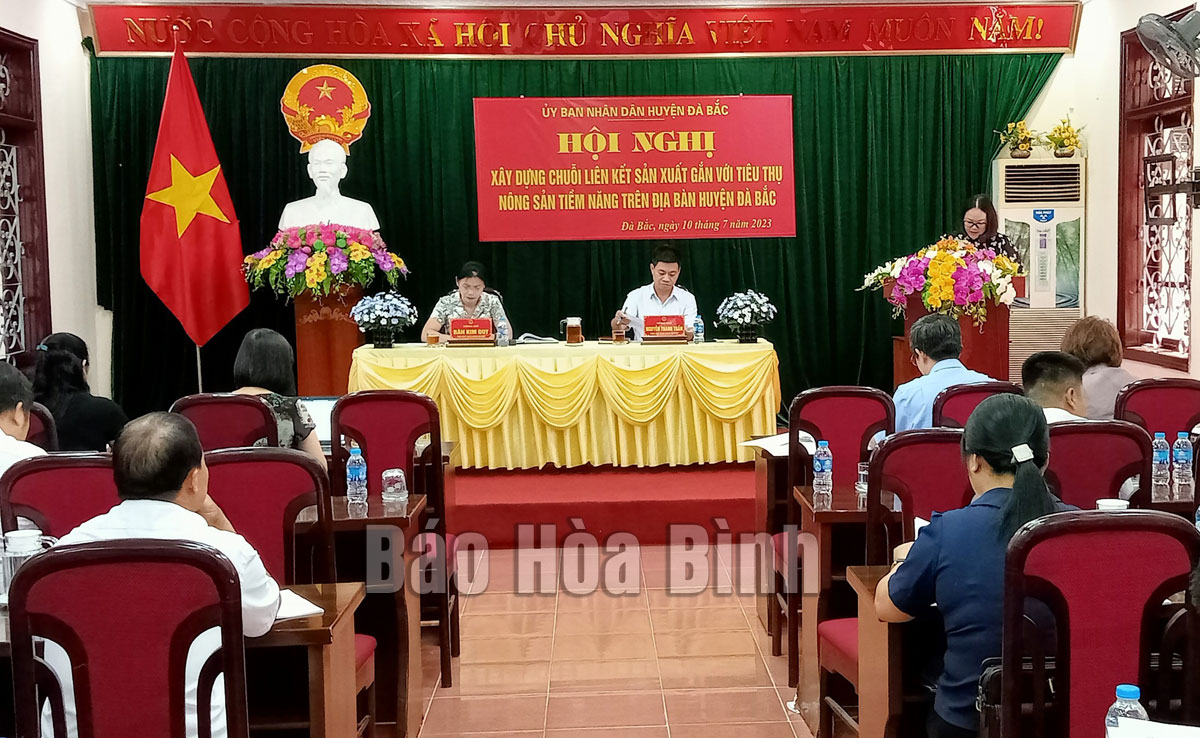
(HBO) - The People's Committee of Da Bac district held a conference to build a chain of production links associated with consuming the potential products in the district.
The conference overview.
The conference took place with the content of creating a forum for cooperatives, cooperative groups and enterprises cooperating in investing, developing the raw material areas, linking production and consumption of the potential and advantagous products of Da Bac district; building the production links between thye cooperatives, cooperative groups and enterprises.
At the conference, the delegates have exchanged the contents relating o the potentials, advantages, ability to join production chain associated with the consumption of the potential agricultural products in the district, as well as the difficulties and limitations in recent times. With the available advantages, in the coming time, Da Bac district will continue to direct and promote implementing the linkages in production and consumption of the potential agricultural products such as supporting the joint consultancy; training, providing the technical guidance; vocational training; supporting the varieties, materials, packaging and product labels; transferring and applying new science and technology according to high-tech application model; creating the raw material areas, taking agriculture for the export-oriented processing industry, bringing the application of science and technology to production and processing is the appropriate direction, improving the competitiveness with the products of high quality, promoting the development of agricultural production in the direction of specialized farming goods.
In addition, the district has been focusing on applying science and technology to production, ensuring the sustainable development, food hygiene and safety, especially in areas with strengths such as cultivation, raising cattle and livestock. poultry, aquatic products, etc. It is suggested continuing to expand the chain of production and consumption link of agricultural products; coordinating in organizing fairs, exhibitions, the investment promotion programs to promote agricultural products; supporting farmers and cooperatives to participate in the programs of product promotion; the vocational training for employees in the rural areas; strengthening inspection, supervision and certification of the quality of the agricultural products.
According to data from the Hoa Binh Provincial Party Committee, the industrial production index for the first six months of 2025 is estimated to have increased by 20% compared to the same period last year. This marks the highest year-on-year growth rate for this period since 2020.
In the first six months of 2025, Hoa Binh province’s export turnover was estimated at 1.145 billion USD, marking an 18.11% increase compared to the same period in 2024. Import turnover was estimated at $ 804 million, a 17.15% increase, which helped the province maintain a positive trade balance.
The lives of the ethnic minority farmers in Tan Lac district have gradually improved thanks to the new directions in agricultural production. This is a testament to the collective strength fostered through the professional associations and groups implemented by various levels of the district’s Farmers’ Union.
With the motto the "product quality comes first,” after nearly one year of establishment and operation, Muong village’s Clean Food Agricultural and Commercial Cooperative, located in Cau Hamlet, Hung Son Commune (Kim Boi district), has launched reputable, high-quality agricultural products to the market that are well-received by consumers. The products such as Muong village’s pork sausage, salt-cured chicken, and salt-cured pork hocks have gradually carved out a place in the market and they are on the path to obtaining the OCOP certification.
In the past, the phrase "bumper harvest, rock-bottom prices" was a familiar refrain for Vietnamese farmers engaged in fragmented, small-scale agriculture. But today, a new spirit is emerging across rural areas of Hoa Binh province - one of collaboration, organisation, and collective economic models that provide a stable foundation for production.
Maintaining growing area codes and packing facility codes in accordance with regulations is a mandatory requirement for agricultural products to be eligible for export. Recently, the Department of Agriculture and Environment of Hoa Binh province has intensified technical supervision of designated farming areas and packing facilities to safeguard the "green passport" that enables its products to access international markets.



